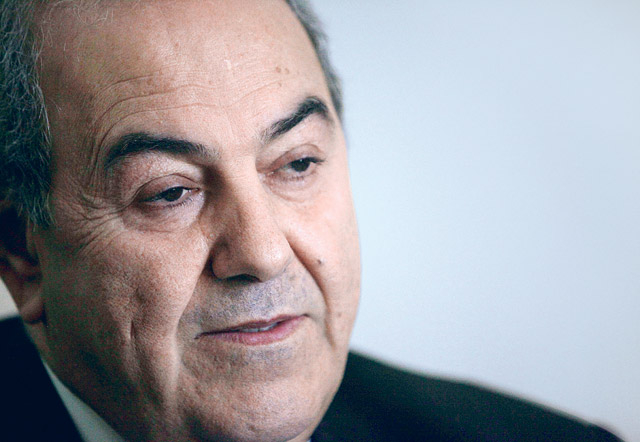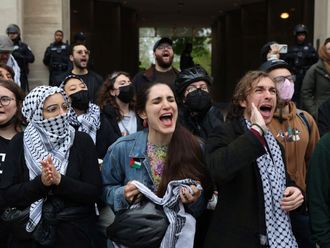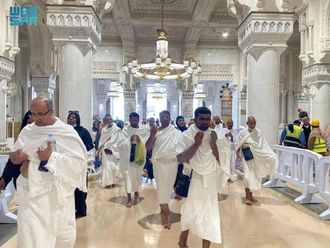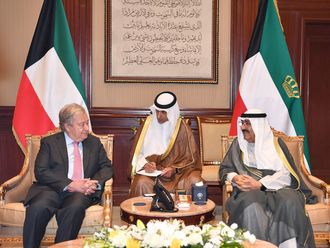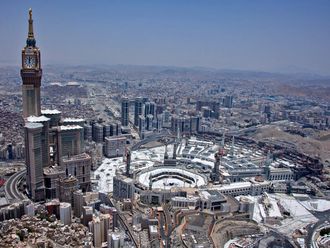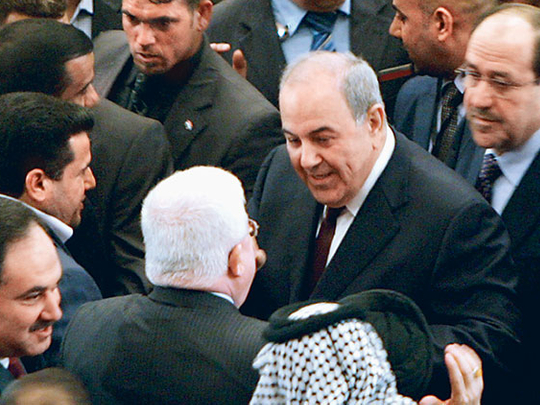
Dubai: More than three-and-a-half- months after the Iraq elections, the government formation seems a far cry. The failure to cobble together a government after the March 7 elections has fuelled public frustration and created a political vacuum.
The insurgents are exploiting the situation and there is an increase in violence. Iraqis, who are facing a myriad problems, are taking to the streets. Last week, there were protests in Basra — in which two demonstrator was killed — and Nassariyah against power cuts which cost the electricity minister his job.
The former prime minister Eyad Allawi-led Iraqiya alliance, backed by Sunnis, won a slim lead in the inconclusive vote, which Iraqis had hoped would set their nation on a path to stability seven years after the US-led invasion.
Allawi's Iraqiya won 91 seats against incumbent prime minister Nouri Al Maliki's State of the Law's 89, causing the deadlock.
The election results also showed the Iraqi people's aspirations for a non-sectarian secular government.
But a post-election merger between the State of Law and the Iraqi National Alliance (INA) had been expected to deprive Al Iraqiya of the chance of forming the government.
However, in an exclusive interview with Gulf News, Allawi said no article in the Constitution indicates that such a bloc formed in a post-election merger will be considered the largest bloc. Such a bloc alone will not get the right to decide the formation of the government, he said.
No doubt the government's formation will be delayed if other groups resort to the issue of the biggest and smallest blocs, Allawi said and reiterated that his Iraqiya coalition insists on its constitutional right and merit.
The merger two months after the elections by the State of Law with the other main Shiite bloc, the Iraqi National Alliance, gave the bloc 159 seats in the 325-seat parliament, only four short of a simple majority. Such numbers would appear to give an edge to Al Maliki or another candidate from his newly expanded bloc to become prime minister.
However, the two groups have not yet agreed on the contentious issue of the nominee for prime minister, the major stumbling block in talks so far.
Iraq needs a strong and stable government badly, as protesters fill the streets of Basra and other locations triggered by failing government services and electricity shortage in soaring temperatures.
Allawi recently said that he had received warnings from American generals and Iraqi officials about plans to kill him, which supports the fact that without a government, the country will be staring again at the abyss of uncertainty and strife.
The following are excerpts from Allawi's interview with Gulf News:
Gulf News: What went on during the recent Parliament meetings?
Eyad Allawi: We were not tasked with forming the government because technically there is no president. The speaker of the house will be chosen and then a president will be named; after that the new president will ask a candidate to form the new government. This is usually done through a deal among different political blocs, which is an agreement over the major responsibilities and positions.
Do you think establishing a government will take more time?
This will depend on the other political blocs. No doubt the government's formation will be delayed if these groups resort to the issue of the biggest and smallest blocs. We in the Iraqiya coalition insist on our constitutional right and merit. There is no item in the constitution which indicates that a bloc formed inside the parliament and after the elections will be considered the biggest, and treated according to its size.
This fact was also pointed out by the Independent Electoral Commission of Iraq when it stressed that all coalitions have to be registered before the elections, thus any new coalition not registered prior to the elections will not be considered after the elections. Moreover, the registration time ended and this issue in particular is not among the responsibilities of the former parliament. We also have video and audio recordings of the chairman of the Constitution Writing Committee stressing and clarifying that the list that wins the elections gets to form the government.
This is our democratic right. The other blocs and coalitions have to be convinced that democracy cannot be explained in different forms, and is not interpreted haphazardly.
The oldest parliament member will be the new house speaker, but he does not get to decide about any issue.
So, how quickly the government will be formed depends in part on the understanding reached by different blocs. The other part is the effectiveness of foreign influence in setting up a new government. This is a very important element and we are completely with the Iraqi will and decision, which is based on the constitution. We all have to work jointly to form a government, one which makes decisions based upon partnership, trust and a basic common programme. This government has to be more than just a mere national partnership government, because the Iraqi people are in dire need of clear decisions and solutions on all security, economy, services and foreign policy levels.
How will you be able to achieve your programmes, visions and aspirations for Iraq through a national partnership government?
We shall achieve all that because Iraqis chose us for our national programme. There are political blocs that changed their mottos into new and more national lines that are very close to our lines. The only difference is that our national programme is more detailed. Hence, there will be details that have to be agreed upon between us and the other blocs.
However, the problem lies in the ego of who will be the next president, prime minister or speaker of the house, whereas an initial agreement over the country's important issues must be the priority now.
Questions about the sectarian quota, national reconciliation, amending of the political process and other issues have to be on the top of everyone's list of priorities. However, this is not happening as the political office of prime minister is the focus of rivalry, while in my belief the issue can easily be resolved in accordance with the Iraqi constitution.
When our brothers in the National Coalition won in the 2005-2006 elections, we did not form another bloc. On the contrary, we congratulated them. I did not want to be a part of the 2006 government because it was formed on sectarian quota basis which is against my beliefs. I do believe that the situation changed and our brothers in the Dawa party gave the name (State of Law) to their list and the Iraqi coalition changed into the Iraqi national coalition. Hence it is important and essential to conduct a dialogue and to discuss a national programme. After that the roles may be distributed.
I also believe that the cornerstone has to be placed now so that there is no chance for political quotas and for us to set the foundations for the coming elections. We have to consider the sectarian quota era as something of the past that will not re-emerge. Today we have to deepen democracy roots, respect the election results and form a national government that will carry Iraq to another and better level.
Why are the members of your coalition being targeted? Do you blame anyone in particular?
I had expected that from the very beginning, and I do expect more to happen in the way of targeting our coalition members. There is a real struggle between fundamentalists and forces of moderation throughout the Middle East. Moreover, Iraq has become an arena for different struggling powers because of Iraq's important strategic location.
You mentioned through different media outlets that the war against sectarianism is going to be both difficult and tough; you also mentioned that you have people in prisons. Who are those people and on what charges were they arrested?
My proof lies in the assassinations and the continuous attempts made on the lives of our coalition members and activists, as well as those martyred because of their support of Iraqiya. And yes, there are those who have been arrested in our list.
Do you feel Iraq is passing through the same phase of lack of transparency, which was evident in Iraq prior to 2003. I mean the secret prisons, illegal arrests and other practices that throw up many questions related to the seriousness of the transformation into a law-abiding country, which is established on transparency and democracy?
US newspapers revealed the existence of secret prisons in Iraq and the government promised to investigate the issue. However, the investigation was not conducted by the government and did not take place. The whole issue represents a huge problem which has also led to the loss of faith in this government by Iraqis. People do not trust this government with the security issue. The number of Iraqi martyrs and wounded reached 7,000 since the beginning of 2010. This is a horrifying number by any measure.
Dr Allawi, are you confident of your list's support? Will your list remain intact and until when?
The Iraqiya is the tool for a national project. It is the Iraqiya which adopted the national project to protect Iraq from political and sectarian quotas, and abides by and advocates the principles of national reconciliation through its minute details that will lead to building of Iraq and its different establishments in a professional and able manner, all of which will revolve around an independent judicial system and Iraq's absolute sovereignty.
In your opinion, to what extent is Iran interfering in the issue of candidates for the post of Iraq's prime minister?
The interference in Iraq's internal issues is clear and in our opinion it has to stop immediately. I don't believe Iraqis have aggressive intentions against anyone, and they will not allow anyone to use their land as a base against any country around the globe. Similarly, Iraqis reject any interference in their affairs.
Moreover, if it were not for the delicate and feeble situation witnessed in Iraq today, none of the interferences of different forces would have happened.
How long do you think it will take to establish a government in Iraq? What is the greatest challenge currently facing Iraqi politics?


